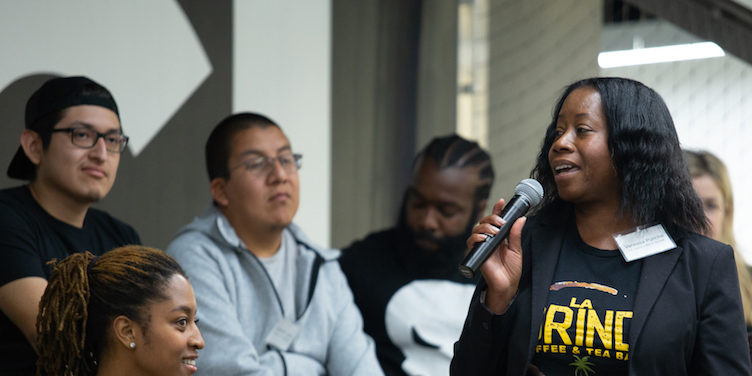
Overview 
In our mission to create an inclusive green economy, LACI is working to diversify the entrepreneurs and business founders in our programs and competitions—while also working to diversify our LACI staff. We want our LACI ecosystem and the broader innovation ecosystem to look like the rest of Los Angeles, which is a melting pot of people and cultures. We also believe that the lack of diversity in the green job market leads to missed opportunities in new idea generation and wealth creation.
In our efforts to diversify the entrepreneur ecosystem, we held a series of events and workshops to hear from entrepreneurs about their experiences and what they think the challenges and opportunities are for entrepreneurs from different backgrounds. Most recently, we held an event called Taking the Lead 2.0, which looked specifically at barriers for founders from veteran and LGBTQ communities.
Veterans Face Challenges in Building Networks and Accessing Capital
More than 75% of veteran entrepreneurs report encountering challenges as they start and grow their business. The top three challenges veterans face are access to capital, limited networks, and difficulty developing relationships with mentors. Of the 200,000 service members transitioning off duty annually, 25% are interested in starting a business while only 4.5% end up pursuing entrepreneurship according to research from Bunker Labs, a non-profit helping veteran entrepreneurs and military spouses find the quickest route to a successful business. A Small Business Administration report found that veteran-owned businesses typically obtain less financing and see lower approval rates than non-veteran owned businesses. Overall, veterans report facing many obstacles to accessing capital and generally lack financial management resources.
Another obstacle facing veteran entrepreneurs is the lack of access to professional networks and mentors. Studies show that 50% of veterans relocate to a city other than their hometown after their military service, and while new locations can offer many opportunities, they also present challenges of establishing new networks and mentorships for veterans.
LGBTQ Entrepreneurs Face Challenges Being Authentic in the Workforce
LGBTQ entrepreneurs face challenges raising capital, building trust in the workplace, and accessing networks outside of LGBTQ peers. In research conducted by StartOut, an organization focused on LGBTQ entreprenruship, LGBQT-founded companies raised 11% less capital than their non-LGBTQ peers. In many ways this is connected to the fact that 37% of LGBT startup founders do not come out to their investors—founders can’t form personal and professional connections if they don’t feel they can be their authentic selves at work. This can additionally lead to stress, anxiety and health problems at work. Research from advocacy group GLADD found that LGBTQ employees who are not openly out in front of their colleagues are less likely to remain in their current position than the ones who are. The number of LGBTQ founders or team members in early-stage companies is often small, which makes it difficult to create a strong network and ecosystem of LGBTQ entrepreneurs for advice, opportunities and connections.
Solutions to Build Key Networks for Veteran and LGBTQ Founders
LACI is helping overcome these challenges to Veteran and LGBTQ entrepreneurship in two ways—directly recruiting LGBTQ and Veteran founders into our incubation programs and competitions, and coaching the founders in our current portfolio on how to build a more diverse and inclusive company culture.
We also partner with organizations focused on capacity and networking building for diverse founders such as Bunker Labs (focused on veteran founders) and StartOut (focused on LGBTQ founders) for networking events and forums such as Taking the Lead 2.0 to kickstart conversation and bring challenges to light.
About Diversity, Equity and Inclusion at LACI
LACI’s has set diversity, equity and inclusion goals for both its staff and the companies it works with through our suite of entrepreneurial services. We are working to have a higher percentage of women founders in our startups, which is the broader economy benchmark. We are also working to have the makeup of the LACI team and startup founder staff match the Los Angeles County demographics at 48% latino, 26% white, 14% asian and 8% black.
LACI aims to build a more inclusive ecosystem to integrate more underrepresented groups into the cleantech sector. Thanks to the generous support of JPMorgan Chase & Co., we launched our efforts in 2016 focused on diversifying our entrepreneur pipeline. In June 2017, we hosted an event called Taking the Lead 1.0: Growing Women and Minority Entrepreneurship and then in May 2019 LACI hosted a follow up event, Taking the Lead 2.0, focused on better engaging LGBTQ and veteran founders.
Diverse teams and inclusive work environments lead to increased innovation, higher employee retention rates, and better financial performance. Only by exploring challenges and kickstarting the conversation on diversity, equity and inclusion can we truly build an inclusive green economy.

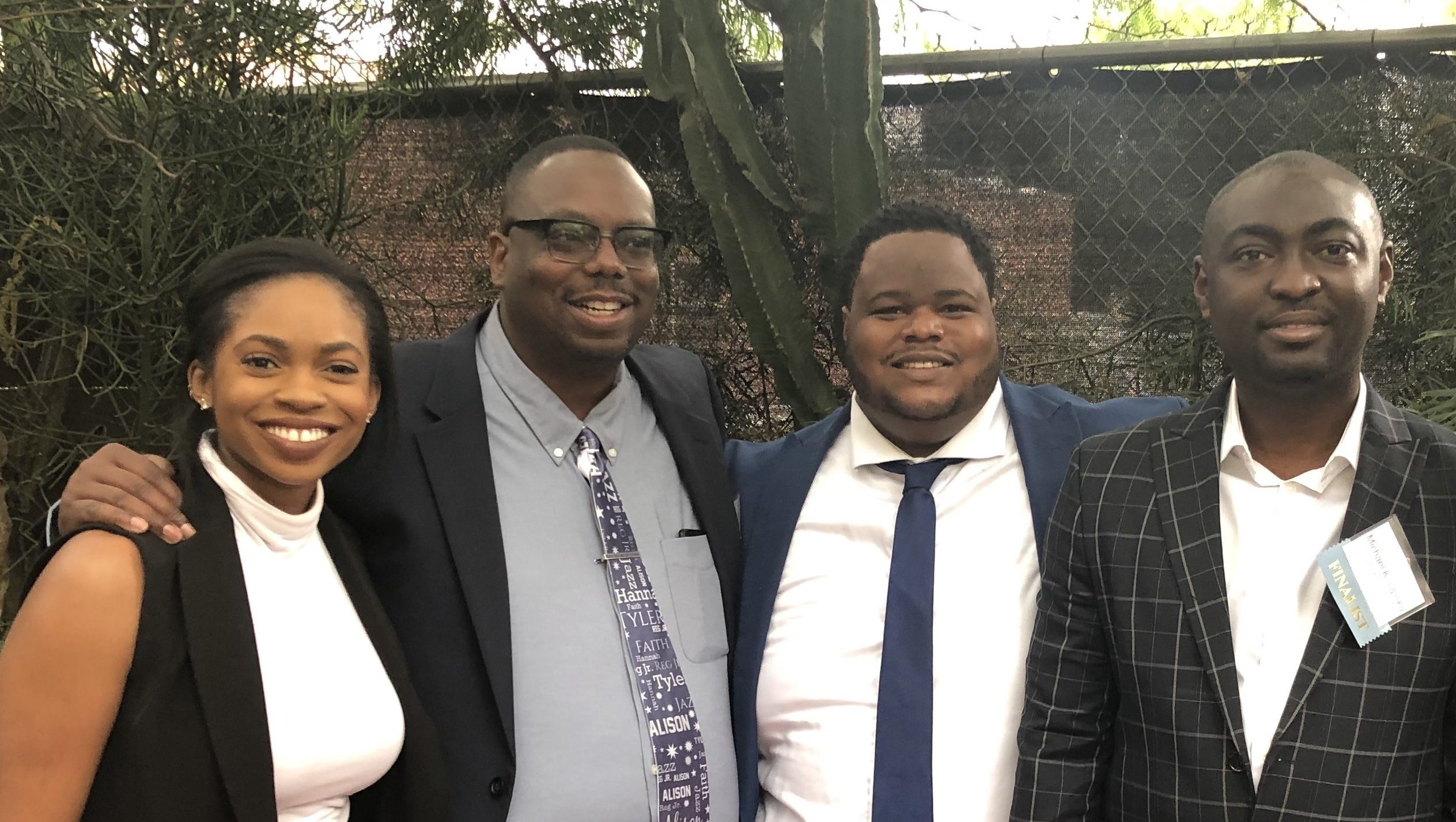
 Corporate and startup innovators from around the world are responding to these market signals and demonstrating to California’s policy makers how their visionary work is resulting in real action around clean energy and smart grid infrastructure, the urban energy-transport nexus and zero emissions tr
Corporate and startup innovators from around the world are responding to these market signals and demonstrating to California’s policy makers how their visionary work is resulting in real action around clean energy and smart grid infrastructure, the urban energy-transport nexus and zero emissions tr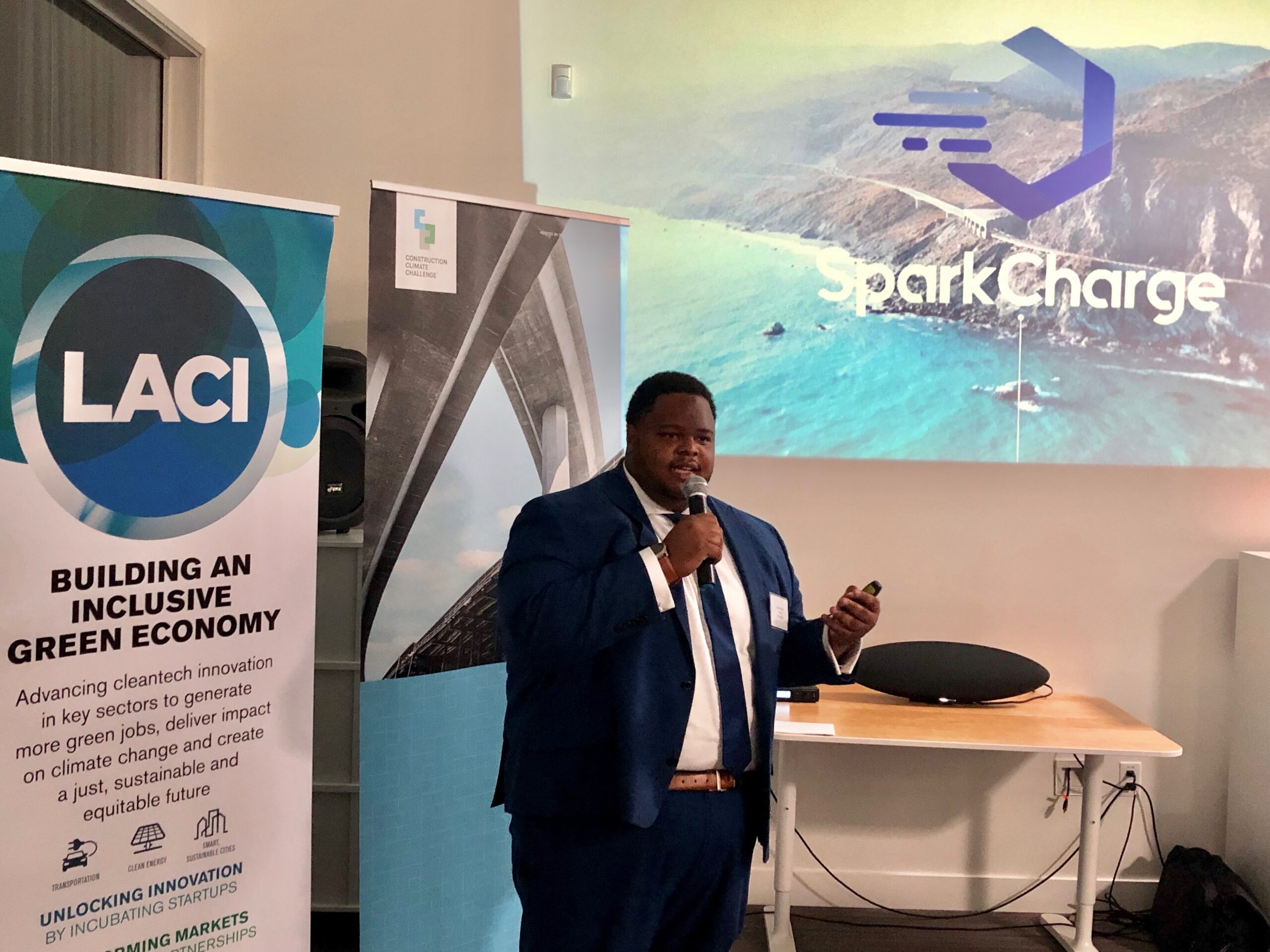
 Los Angeles, June 27, 2019. The Los Angeles Cleantech Incubator (LACI) and New Energy Nexus announce SparkCharge as the winner of the 2019 California Climate Cup and recipient of the $25 thousand dollar cash prize. The California Climate Cup is sponsored by
Los Angeles, June 27, 2019. The Los Angeles Cleantech Incubator (LACI) and New Energy Nexus announce SparkCharge as the winner of the 2019 California Climate Cup and recipient of the $25 thousand dollar cash prize. The California Climate Cup is sponsored by 

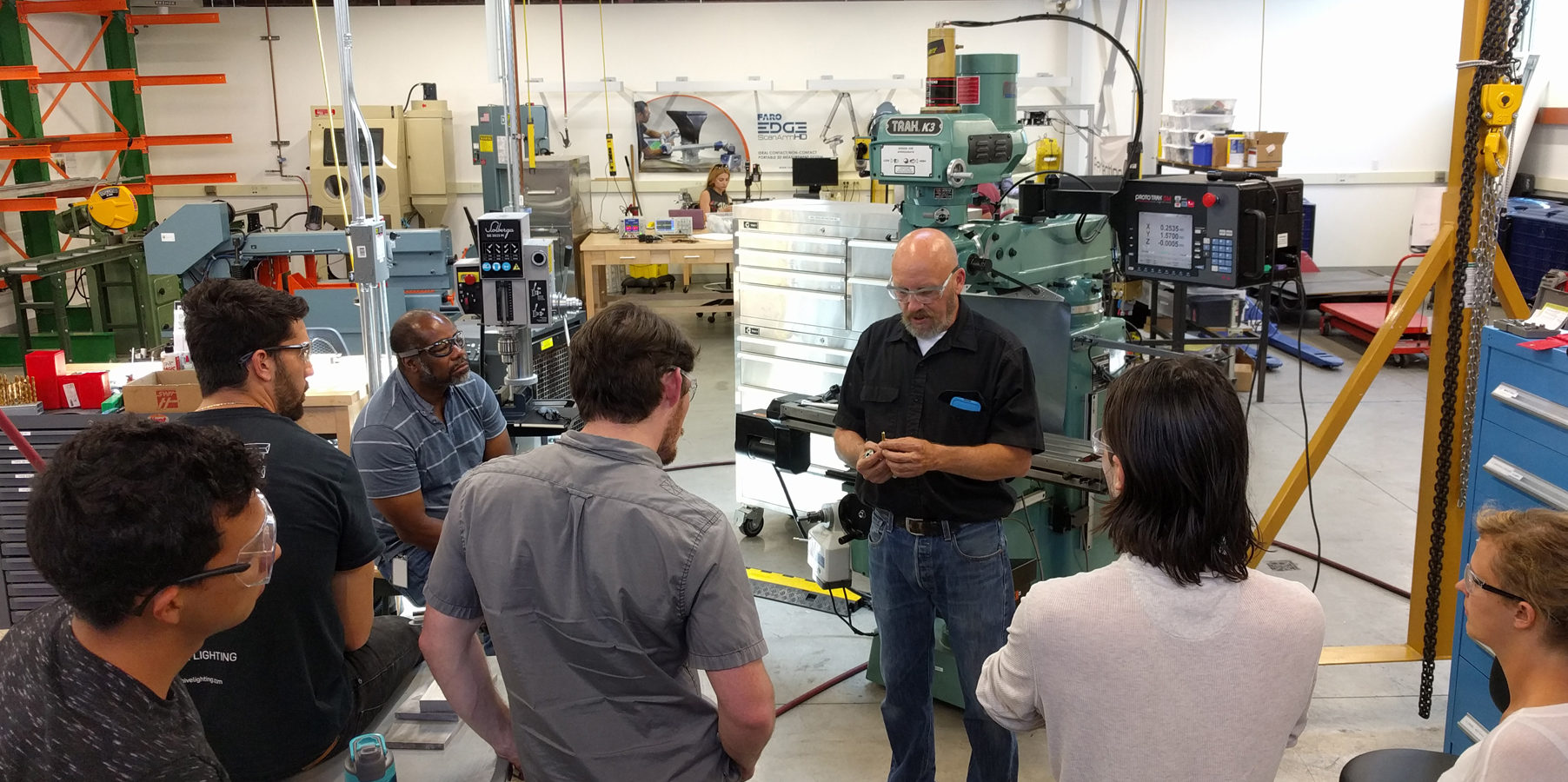
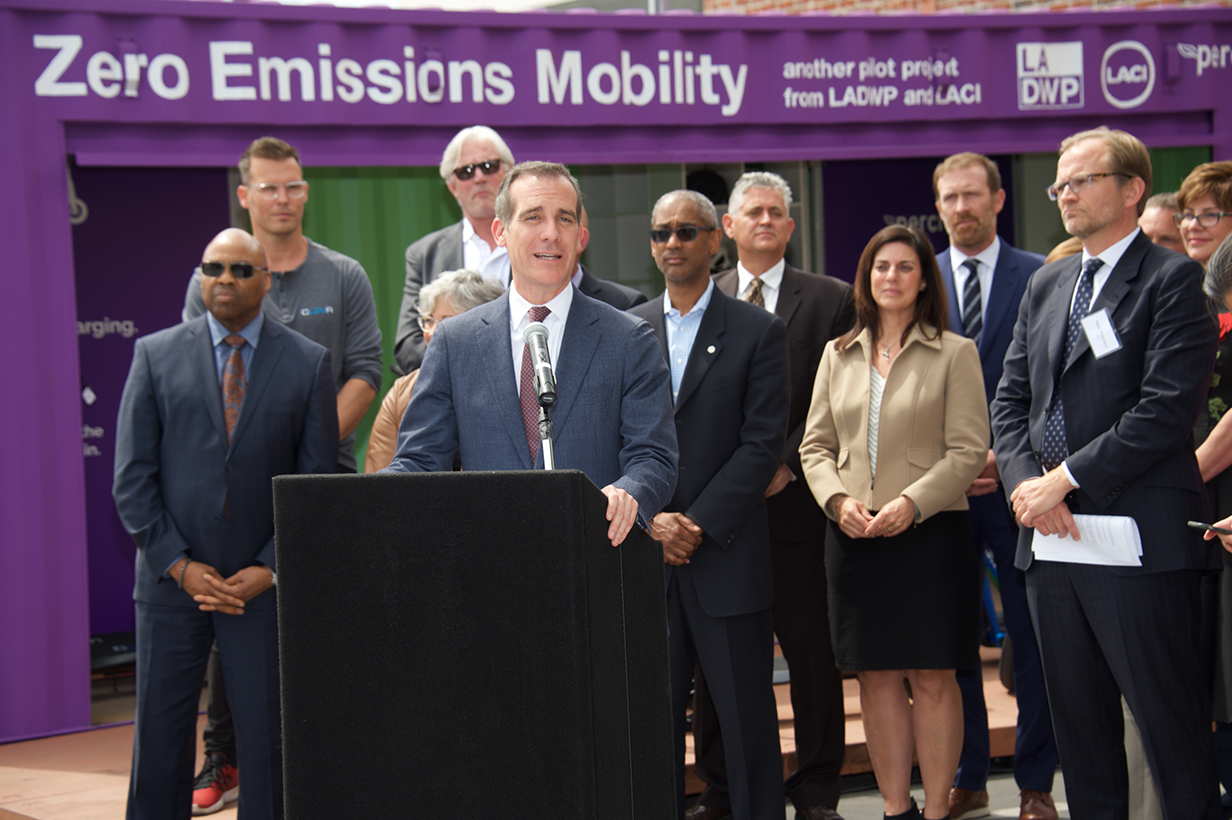
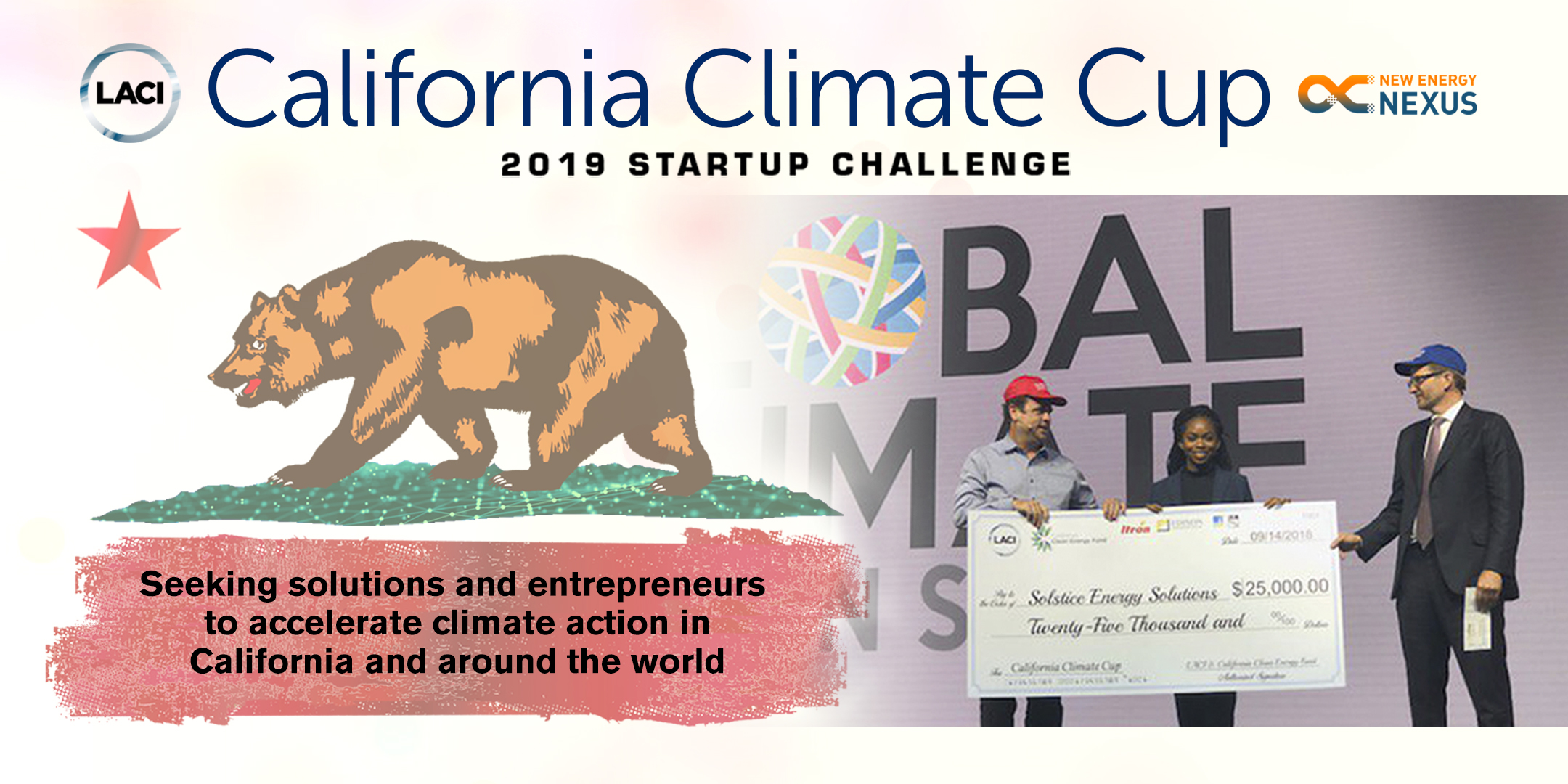
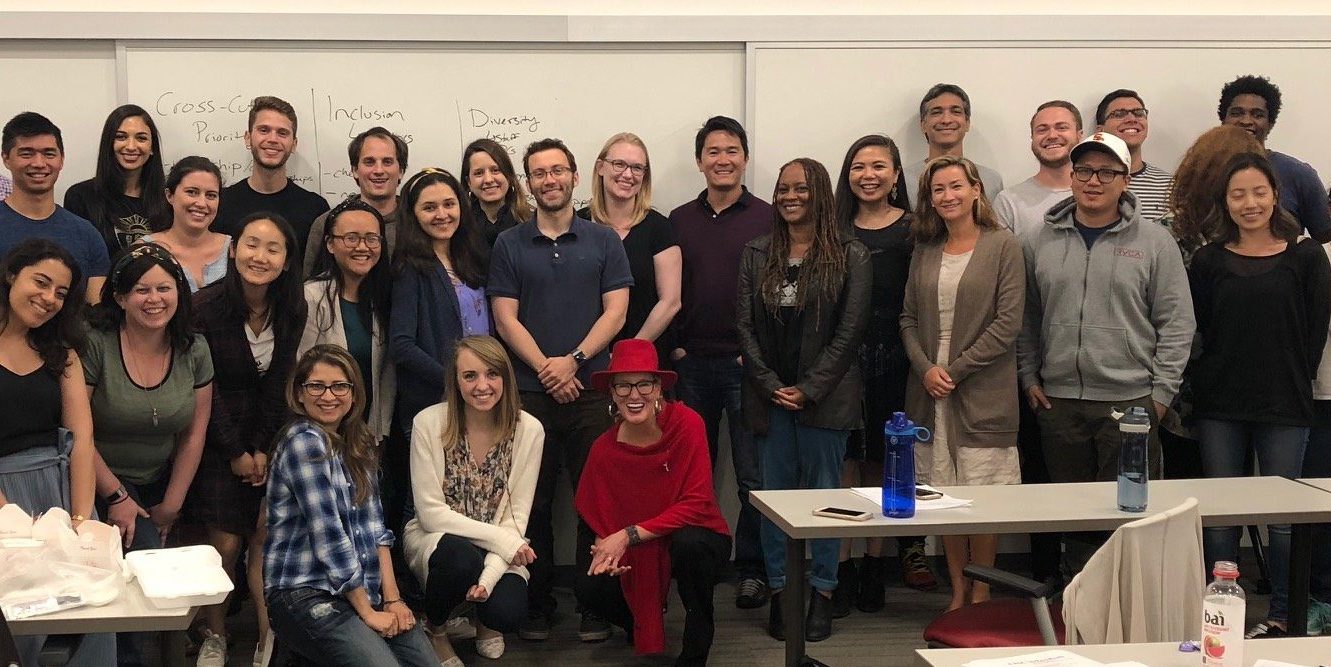
 LACI was selected by researchers at the University of Southern California’s Greif Center for Entrepreneurial Studies to be the subject of a case study about diversity and inclusion. The study explores the first year of LACI’s Diversity and Inclusion efforts, including key decision points, achievements, and challenges faced along the way. The case study is being distributed through USC’s partnership with Harvard Business Review and the CaseCentre for use in classrooms around the world.
LACI was selected by researchers at the University of Southern California’s Greif Center for Entrepreneurial Studies to be the subject of a case study about diversity and inclusion. The study explores the first year of LACI’s Diversity and Inclusion efforts, including key decision points, achievements, and challenges faced along the way. The case study is being distributed through USC’s partnership with Harvard Business Review and the CaseCentre for use in classrooms around the world.

